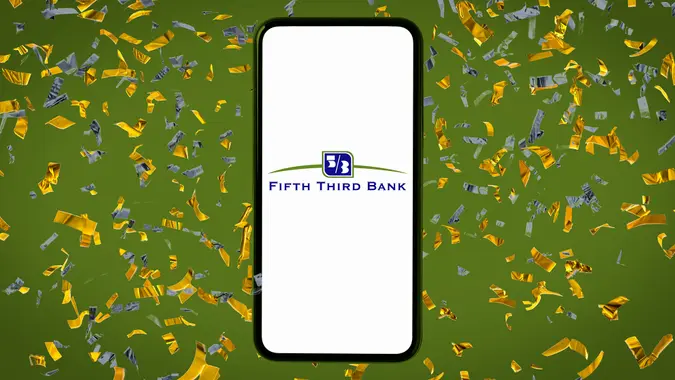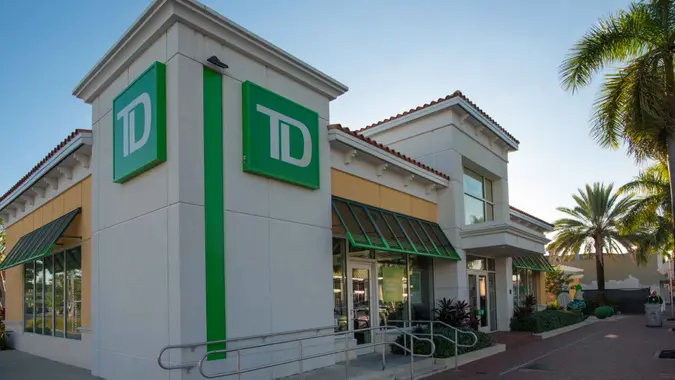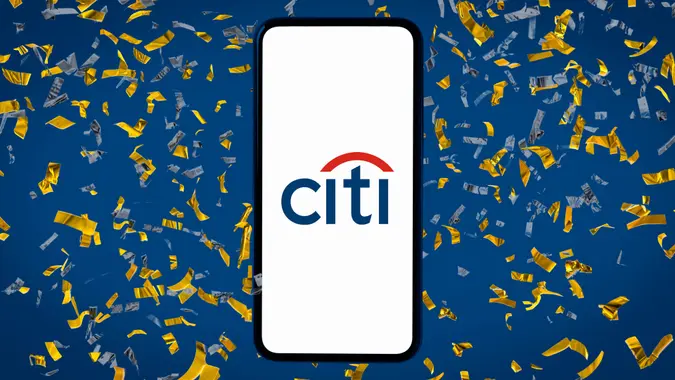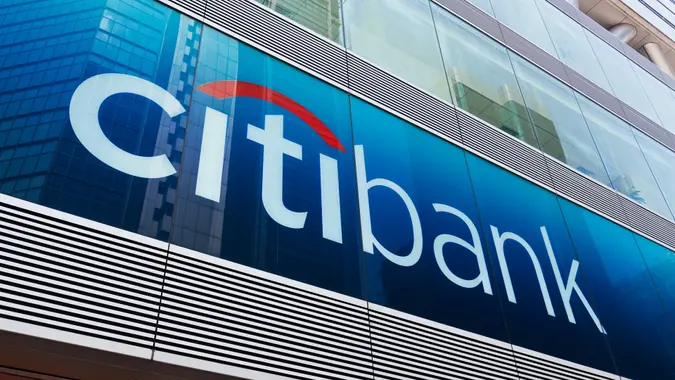Personal Bankers: What Are They and How Much Do They Make?

Commitment to Our Readers
GOBankingRates' editorial team is committed to bringing you unbiased reviews and information. We use data-driven methodologies to evaluate financial products and services - our reviews and ratings are not influenced by advertisers. You can read more about our editorial guidelines and our products and services review methodology.

20 Years
Helping You Live Richer

Reviewed
by Experts

Trusted by
Millions of Readers
Online banking has become a go-to modern-day convenience. But there is still something that can be said of the personal touch banking in person can offer. No matter what financial institution you prefer, there are staff members who work there specifically to help you through your banking experience. If you have questions, there is no need to go through your personal banking alone.
What Is a Personal Banker?
In retail banking, a personal banker is a bank staff member who helps new and existing clients with financial transactions. The exact responsibilities of this personal financial advisor vary by bank. In general, they help with complex transactions that take more than a few minutes. Here are some personal banking job description duties:
- Opening or closing bank accounts
- Purchasing a CD
- Selling loans
- Rolling money into an individual retirement account
- Setting up college savings accounts
- Developing and maintaining positive consumer relationships
- Planning effective sales strategies
- Providing product information to customers
- Tracking the performance of current financial products
- Making projections for the future
- Stepping in for tellers when needed and answering customer questions
How Much Does a Personal Banker Make?
The national average hourly pay for personal bankers is $19.00 to $45.27. This adds up to an average salary of $40,346 to $94,170. As with any position, salaries for personal bankers vary depending on where you live. Places with a high cost of living, like Washington, D.C., might pay more than an area with a lower cost of living, like Oklahoma.
Your salary can also depend on what your exact personal banker job description is. It might include assisting with products and services such as checking and savings accounts or more involved financial advice and tasks.
What Is the Difference Between a Personal Banker vs. a Teller?
Personal bankers can fill in for tellers, as both understand the intricacies of handling cash and basic banking procedures. However, they also have a more in-depth understanding of their bank’s policies and products to offer customers.
Tellers have a median pay of $17.46 per hour, according to the Bureau of Labor Statistics. Personal bankers do more complex work than tellers, so you could expect to make more as a personal banker.
How Do You Become a Personal Banker?
To get started, you could apply for a position as a personal banker directly, or you could start as a teller to gain some banking experience. Once you have experience as a teller, you could apply for a personal banker position with your current employer or at a different bank. Banks also look for sales experience, so you could start in retail sales to develop your skills and then apply for a personal banking position.
Since some banks will accept a degree in place of experience, applicants with a college degree in business or finance might want to apply. Make sure to mention any relevant internships or work experience.
Final Take To GO
Personal banking can be a good career if you enjoy working with and helping people, as you’ll be guiding customers toward making smart money decisions and educating them about banking.
Working as a personal banker can help you develop skills that you could use to move into more advanced positions. It can be an excellent way to move into a career in financial services, like bank management and financial advising.
FAQ
Here are the answers to some of the most frequently asked questions regarding personal bankers.- What is the role of a personal banker?
- Here are some of the roles a person banker fills:
- -Providing customer service and selling bank products that are beneficial to customers.
- -Interacting with customers in person, over the phone and by email. They should know how to de-escalate situations as they might have to interact with dissatisfied customers.
- -Educating people about finance.
- Here are some of the roles a person banker fills:
- Can you be a personal banker without a degree?
- Yes, you may be able to get hired as a personal banker with a minimum of a high school diploma or GED. Although if you want a better salary, you might want to pursue a bachelor's degree.
- A job requirement is to have basic computer skills, including an understanding of how to use programs like Excel and Word. Potential applicants who don't have basic computer skills should consider taking a class at a community college or local organization to develop the skills needed for a personal banking position.
Chris Chisholm contributed to the reporting for this article.
Data is accurate as of May 10, 2023, and is subject to change.
Our in-house research team and on-site financial experts work together to create content that’s accurate, impartial, and up to date. We fact-check every single statistic, quote and fact using trusted primary resources to make sure the information we provide is correct. You can learn more about GOBankingRates’ processes and standards in our editorial policy.
- ZipRecruiter. "ZipRecruiter."
- U.S. Bureau of Labor Statistics. "Personal Financial Advisors."
 Written by
Written by  Edited by
Edited by 

























